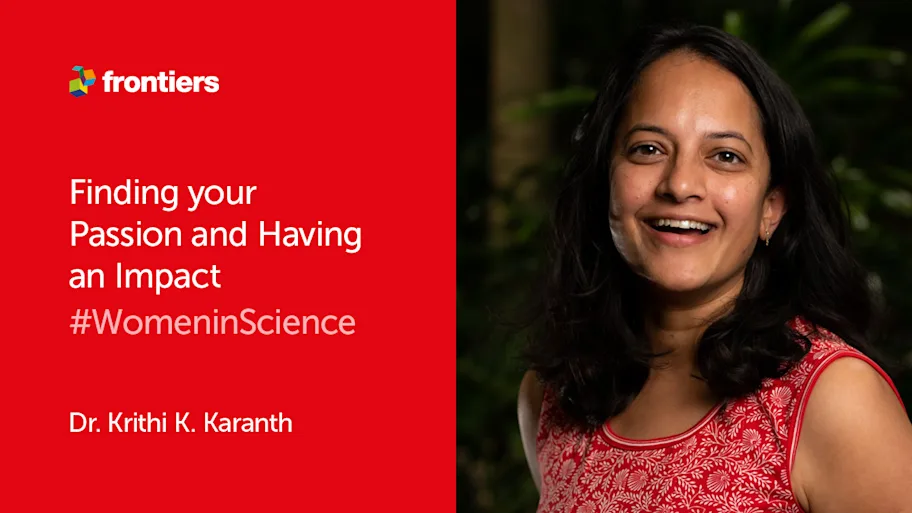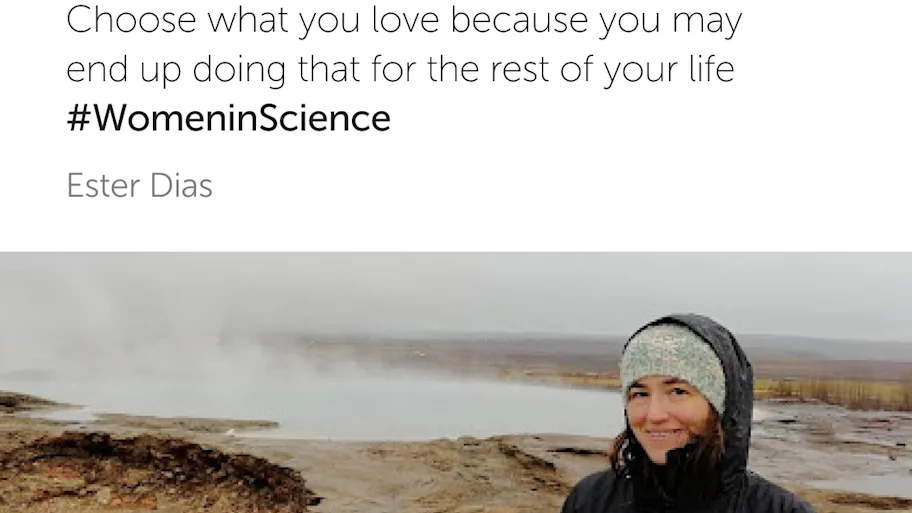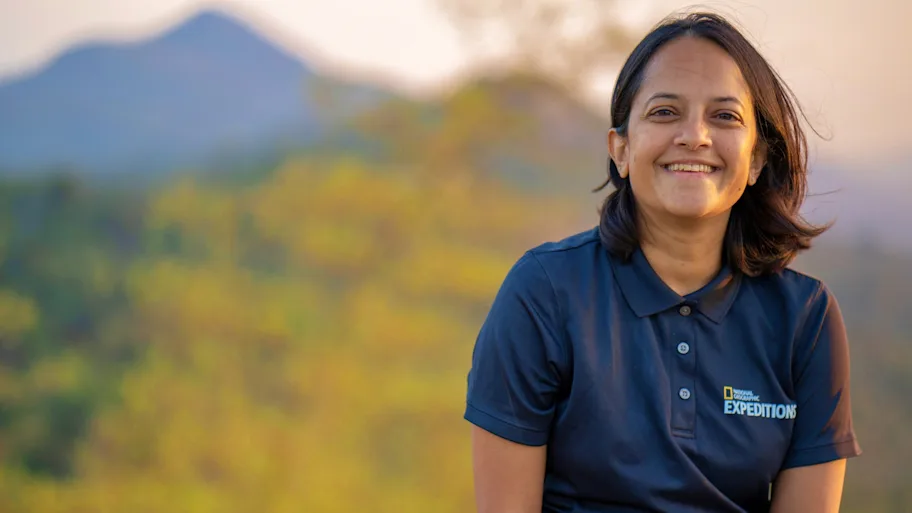
- Science news
- Frontiers news
- Vidya Athreya – If you do something you love, you are bound to succeed
Vidya Athreya – If you do something you love, you are bound to succeed
Author: Emma Phipps, Journal Specialist
Dr. Vidya Athreya is an ecologist who works for the Wildlife Conservation Society in India and focuses mainly on human-wildlife interaction. We discussed how India’s patriarchal society has influenced her career, as well as the trials and tribulations of being a mother and a scientist.

Could you explain your current role?
“I am a conservation scientist which means that I am interested in achieving positive conservation outcomes using knowledge. I am interested in the study of human-wildlife interactions and relationships. For example, I like to understand how large wildlife can live among high densities of people and the relationships people have with these animals. Currently, I supervise some research projects, as well as mentoring other youngsters who are going to be conservation scientists in the near future.”
How did your academic career evolve?
“I always wanted to work in ecology or anything to do with plants and animals, and from the beginning have been fascinated in interactions and interplays between different organisms. In short, it was a zigzag route to where I am now. I was initially in the arts stream as there were no opportunities to know which other careers to take. When I went to my first wildlife camp, I realised that it was something I wanted to work on and did a Master’s in Ecology followed by a PhD. I also wanted to work on large cat ecology as cats generally fascinate me and I am grateful I get to do that. Motherhood caused a long break in my career, but it was important to me to take that break. Most of my work on human and large cat interactions started after my daughter was born. Serendipity was definitely part of the journey because my PhD also happened after she was born.”
Did being a mother affect any of your decisions?
“I took a break in my career as I wanted to be around my daughter for the first 5 years. Mentally it was quite hard, as I think mothers usually feel guilty leaving the kids behind and going to work. I still feel guilty! But I did not have a choice. I also think motherhood gives you a different perspective due to caring for a child and all the aspects that go with it; you see the world in a more empathetic manner. When my daughter was little, she would tell me not to work as it involved a lot of travelling, but now she is a teenager, I wish she stayed at home more!”
Have you faced many challenges throughout your career, either in general or specifically as a female scientist?
“Definitely, Indian society is deeply patriarchal, especially in the wildlife field. Dealing with big cats or large wild animals is usually male-dominated. I was not initially welcomed by my colleagues, but because I worked so extensively, I reached a level where I had to be taken seriously. Having said that, most of the mentors who helped me along the way were men and from the forest department.
“The other much greater challenge I faced was trying to break old ideas by showing that large cats can share space with humans with very low levels of conflict. There was a great deal of opposition mainly from my wildlife biologist colleagues who could not break the myths in their own minds that wild animals can live in such complex multi-use landscapes.
“The last challenge was trying to be a good mother whilst having a profession that required me to travel a lot. This was probably the most difficult part of the work.”
What would you say are your biggest achievements in your career or otherwise?
“I would say my biggest achievement was to break the divide (in my head) between researchers and forest managers which is very common in India. It was an excellent experience to work closely with the field managers and rural folk which, I believe, allowed for a great deal of personal growth. It also helped me change my own perceptions of where wildlife should be, how they should behave and how people actually view them rather than the usual narrative we hear in the media, even through reputable international TV channels. They offer a very simplistic and often negative connotation of what the reality actually is on the ground. This is often harmful for conservation as these narratives fearmonger rather than tell the entire story.
“I believe my other achievement is providing science-based evidence of complex human and large cat interactions that we didn't even know about. This is because biologists largely work inside protected areas, whereas I was discovering a fascinating world of human - large cat relationships in rural landscapes with a very high density of people; these were studied and finally published in peer-reviewed literature. I also wrote extensively in popular articles and gave a lot of talks which has helped share the findings to a much larger audience.
“The third achievement was to actually work with all the important stakeholders to reduce human - leopard conflict in Mumbai. It was just amazing to see how people who were interested came together for a cause. It really showed me the power of people.”
What would your advice be to a young female student starting in science now, and what advice would you give to your younger self?
“My advice would be not to be scared to think out of the box even for a fear of making a mistake. You will never learn anything new by staying inside the box. Also, if you are ethical, hard working, have good intentions and do something you love, you are bound to succeed. To my younger self? I guess my journey has been quite interesting with the usual ups and downs, but I would say I should have been easier on myself along the way.”

Frontiers is a signatory of the United Nations Publishers COMPACT. This interview has been published in support of United Nations Sustainable Goal 5: Achieve gender equality and empower all women and girls.






